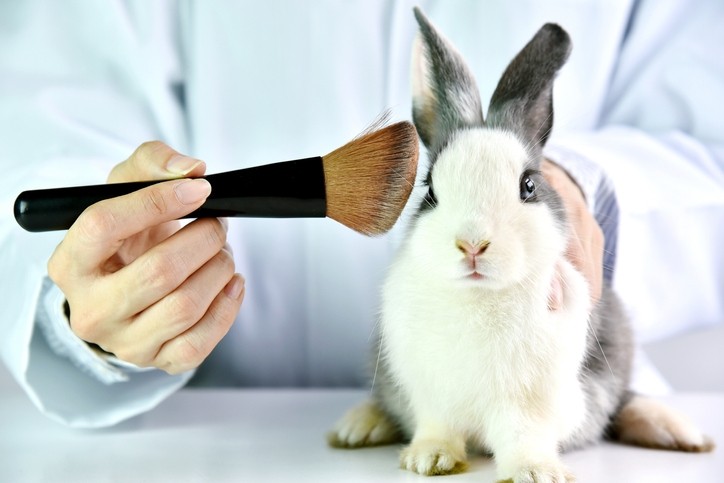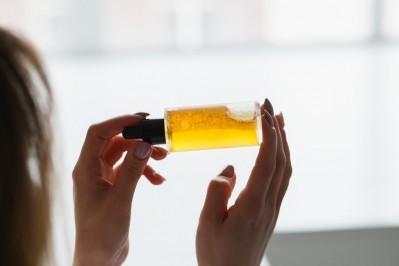Cosmetics industry calls on EU institutions to uphold animal testing ban ‘as intended’

Signatories include Avon, Dermalogica, Molton Brown, Natura & Co, The Body Shop and Unilever, along with a number of non-profits, including PETA, Cruelty Free International and Humane Society International who also issued a separate joint statement.
EU animal testing ban on cosmetics ‘effectively shredded’
The open letter said the existing EU animal testing ban on cosmetic products and cosmetic ingredients had been “effectively shredded” and “dealt a devastating blow” by a series of regulatory decisions made by the European Chemicals Agency (ECHA) calling for new animal data under the REACH Regulation – calls that industry claimed had been supported by the European Commission and ECHA’s Board of Appeal.
“The EU Cosmetics Regulation animal testing and marketing bans have been used as the gold standard around the world – setting the precedent for cosmetics products and ingredients to be used safely without subjecting animals to cruel and unnecessary tests,” the letter read.
“…ECHA is now requiring some widely used cosmetics ingredients (and ingredients used in many other types of consumer products) to be tested on thousands of animals under the guise of the Registration, Evaluation, Authorisation and Restriction of Chemicals (REACH) regulation. As a direct result of these decisions, the use of thousands of rats and rabbits in tests is required, some of whom will be force-fed a cosmetics ingredient throughout pregnancy before they and their unborn offspring are killed and dissected. REACH must not be used to circumvent the Cosmetics Regulation and render the cosmetics testing and marketing bans meaningless.”
Addressed to David Maria Sassoli, president of the European Parliament; Charles Michel, president of the European Council; and Ursula von der Leyen, president of the European Commission, the open letter called on all three EU institutions to ensure that the EU cosmetics animal testing ban be “upheld as intended, with no new tests on animals allowed”.
“…Indeed, as clarified by the Court of Justice of the European Union in the 2016 European Federation for Cosmetics Ingredients case, new safety-assessment data for cosmetics substances imported into the EU must rely only on non-animal assessment methods. Logically, precisely the same approach must be adopted for testing within the EU, whether under REACH or any other EU legislation.”
PETA and Unilever – ‘back door’ animal testing a ‘worrying retreat’
A raft of beauty majors signed an open statement last month, claiming ECHA was undermining the EU animal testing ban by making demands for new animal data under REACH – a claim the agency refuted.
Julia Baines PhD, science policy manager at People for the Ethical Treatment of Animals (PETA) – one of the leading non-profit signatories, said: “Enough is enough. Despite banning cosmetics tests on animals over a decade ago, EU authorities have been enabling these tests through the back door the entire time. In the last five years alone, tests requiring at least 10,000 animals to be force-fed or inhale cosmetics ingredients have been mandated.”
Enabling animal tests completely disregarded the purpose of the Cosmetics Regulation, Baines said. “EU authorities must uphold the ban and not let cosmetics ingredients be tested on animals under any circumstances.”
Sunny Jain, president of beauty and personal care at Unilever – a key beauty major signatory, said the demand for animal data under REACH was “a worrying retreat” given how much progress had been made in the EU towards ending animal testing for cosmetics.
“We’re pleased to see our brands, peers and animal protection groups speaking out on a subject that matters to so many consumers,” Jain said.
‘No reason’ to test on animals – next-gen assessment must be accepted
At the centre of this industry-wide kickback against ECHA and EU institutions were two rulings from ECHA’s Board of Appeal, upheld in August 2020, calling for animal testing on two Symrise ingredients destined for sunscreen products – homosalate and 2-ethylhexyl salicylate. The Board of Appeal claimed additional data was necessary to ensure occupational safety for workers in chemical manufacturing plants; a ruling Symrise had initiated two actions for annulment on.
Julia Fentem, head of Unilever’s Safety and Environmental Assurance Centre (SEAC), said: “There is quite simply, no reason to test cosmetics products, or the ingredients used in them, on animals.”
Referring to the above two ingredients, Fentem said: “The ingredients at the centre of ECHA’s testing decisions have a long history of safe use by consumers, and have been handled safely in factories for many years thanks to effective, exposure-based assessments and controls.”
She said industry must be provided the opportunity to maximise use of “non-animal next generation assessment approaches” that complied with animal testing bans under the EU cosmetics Regulations, including chemical regulations like REACH.
“We will continue to work with other companies and partners, as part of the Animal-Free Safety Assessment Collaboration and other multi-stakeholder initiatives, to make progress in applying non-animal approaches for science-based decision-making to protect human health and our environment. We very much hope that more of these will be accepted by the regulatory authorities.”
Concerns that Chemicals Strategy for Sustainability will spark further animal data demands
The open latter also raised concerns that the European Commission’s recent Chemicals Strategy for Sustainability may spark more animal data demands under REACH, noting the regulation was likely to “expand testing requirements for substances including cosmetics ingredients, at the cost of potentially thousands of animal’s lives”.
Adopted in October 2020, the Chemicals Strategy for Sustainability formed part of the EC’s wider European Green Deal and included a series of initiatives to bolster safe and sustainable chemical design, whilst phasing out existing hazardous substances.
John Chave, director-general of trade association Cosmetics Europe, said: “We believe that the way forward for the EU is the acceptance of alternative testing methods, particularly in the light of possible increased animal testing as a result of the Chemicals Strategy for Sustainability [CSS].”
Dr Carol Treasure, founder and CEO of UK animal-free testing lab XCellR8, previously said the beauty industry now had to work hard at building bridges with ECHA to ensure next-generation, non-animal tests were accepted.
![Since the 2013 EU Cosmetic Regulation ban on animal testing for cosmetic ingredients and cosmetic products, researchers found 63 REACH dossiers for cosmetic-only ingredients still conducted in vivo testing [Getty Images]](https://www.cosmeticsdesign-europe.com/var/wrbm_gb_food_pharma/storage/images/_aliases/wrbm_medium/publications/cosmetics/cosmeticsdesign-europe.com/article/2021/08/25/animal-testing-conflict-between-eu-cosmetic-regulation-and-echa-s-reach-regulation-says-study/12766572-1-eng-GB/Animal-testing-conflict-between-EU-Cosmetic-Regulation-and-ECHA-s-REACH-regulation-says-study.jpg)
![The approved approach involves a three-step method for assessing skin sensitisation and a bolt-on test to predict allergen potency [Getty Images]](https://www.cosmeticsdesign-europe.com/var/wrbm_gb_food_pharma/storage/images/_aliases/wrbm_medium/publications/cosmetics/cosmeticsdesign-europe.com/article/2021/06/30/animal-free-testing-for-skin-sensitisation-allergen-potency-from-basf-and-givaudan-receives-oecd-approval/12607502-1-eng-GB/Animal-free-testing-for-skin-sensitisation-allergen-potency-from-BASF-and-Givaudan-receives-OECD-approval.jpg)
![The New Science Programme will be coordinated by a central advisory board and aims to drive forward non-animal safety assessment capabilities, regulatory use of these alternatives, and education and training across industry [Getty Images]](https://www.cosmeticsdesign-europe.com/var/wrbm_gb_food_pharma/storage/images/_aliases/wrbm_medium/publications/cosmetics/cosmeticsdesign-europe.com/article/2021/06/15/cosmetics-industry-unveils-animal-free-safety-assessment-new-science-programme-set-to-launch-2022/12568515-1-eng-GB/Cosmetics-industry-unveils-animal-free-safety-assessment-New-Science-Programme-set-to-launch-2022.jpg)



![Chinese study highlights mental health challenges in atopic dermatitis, emphasising holistic patient care. [Getty Images]](https://www.cosmeticsdesign-europe.com/var/wrbm_gb_food_pharma/storage/images/_aliases/wrbm_tiny/publications/cosmetics/cosmeticsdesign-asia.com/headlines/formulation-science/chinese-research-linking-atopic-dermatitis-to-mental-health-underscores-need-for-holistic-care/17040623-1-eng-GB/Chinese-research-linking-atopic-dermatitis-to-mental-health-underscores-need-for-holistic-care.jpg)





